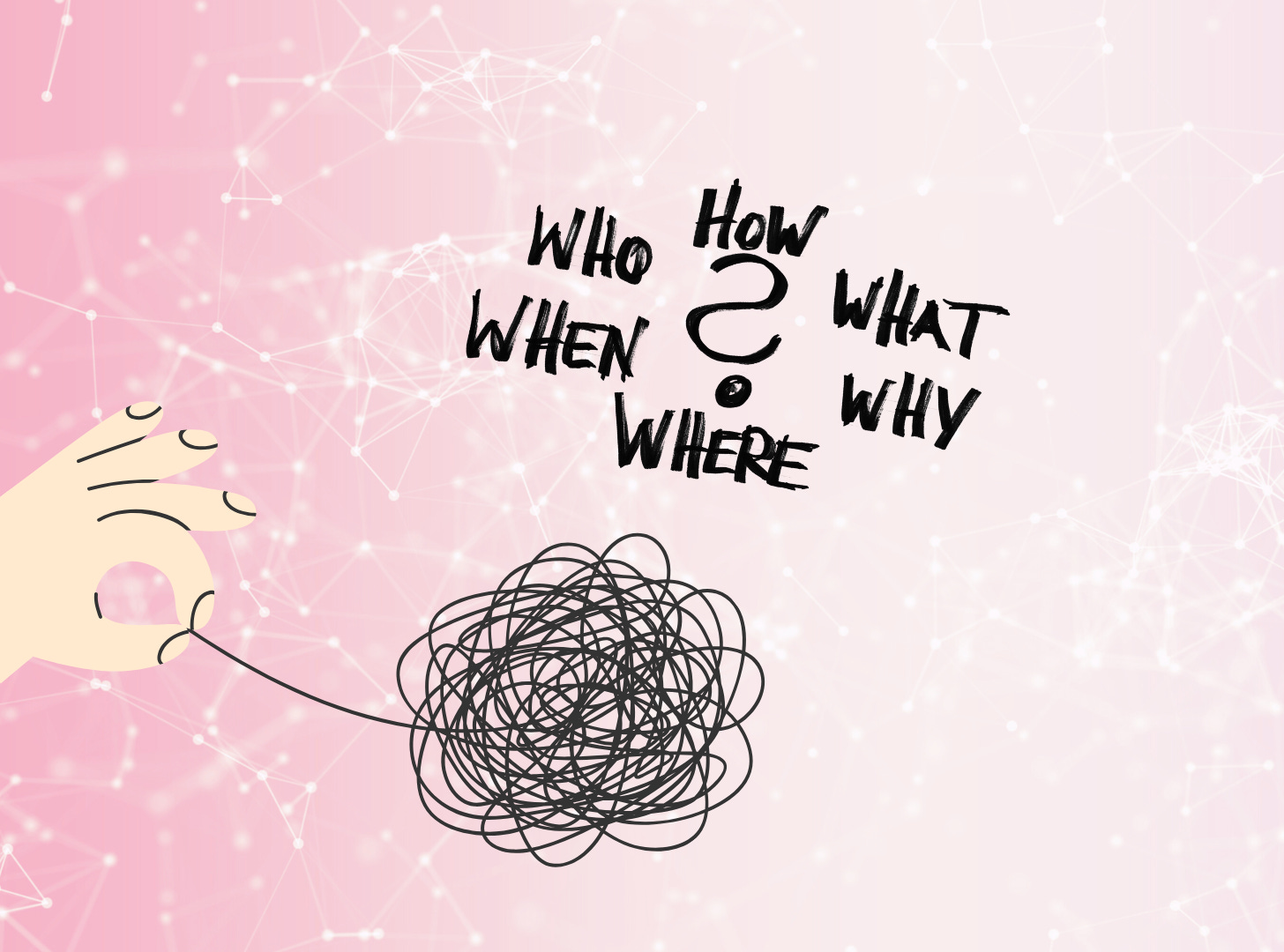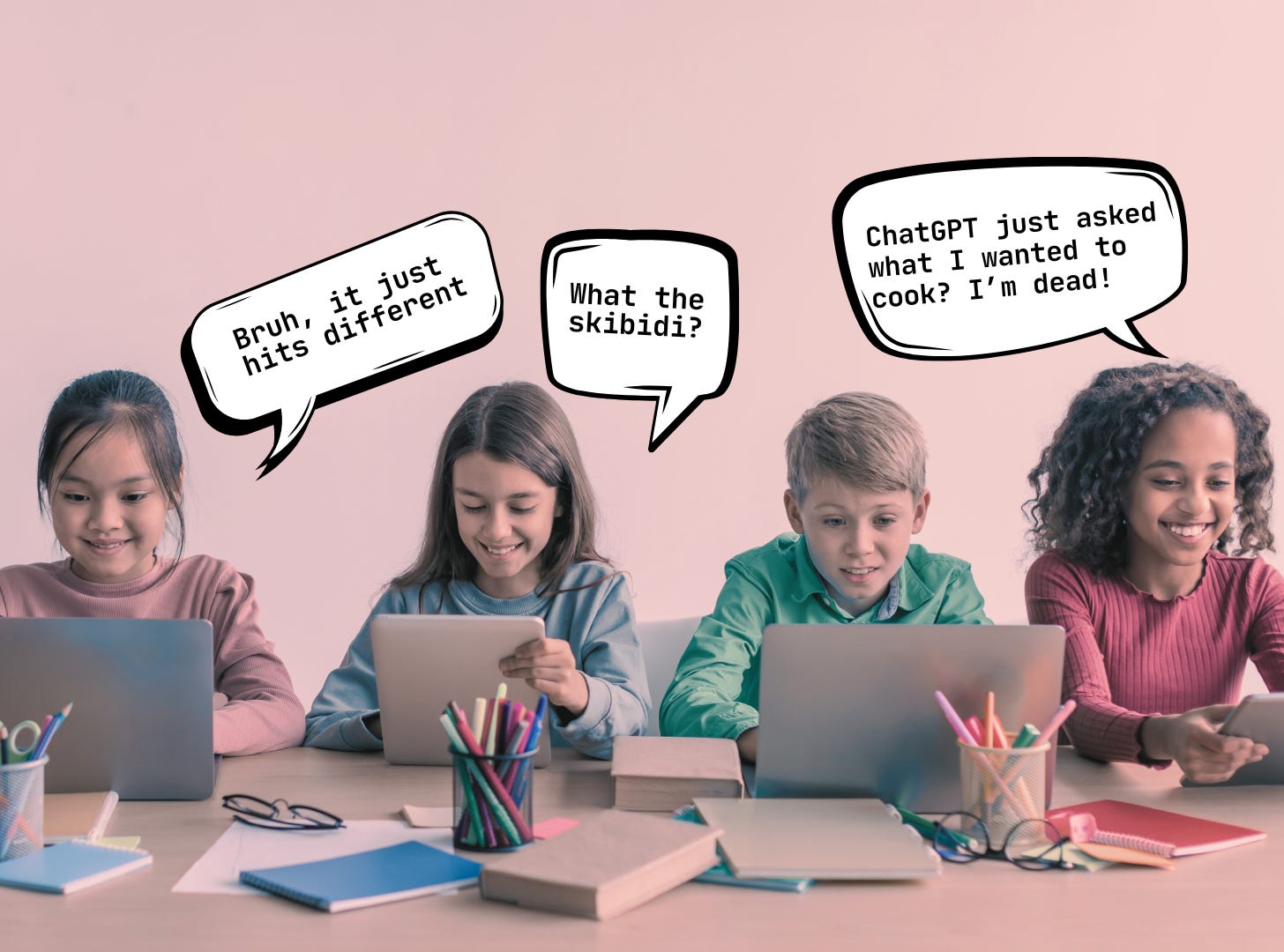In Celebration of Curiosity & Why AI Doesn't Understand Gen Alpha
AI talk can get weighty, but today I want to celebrate one of the ways AI might bring a little joy. And, in case you missed it, apparently AI is as stumped as us when it comes to Gen Alpha lingo!
Hopefully this past holiday weekend was an opportunity to disconnect and enjoy summer's wonders, from barbecues and beaches, to long walks and time spent together. While AI news these days often gives us reason to be anxious, I wanted to share a lighter thought regarding generative AI's ability to fuel curiosity and give substance to what would be otherwise fleeting musings.
Pulling the Thread
I'm naturally curious. I always want to know the who, what, where, when, how and why of everything. And often regarding the most random subjects too. My kids are similarly inclined and we often find ourselves Googling for answers to often unimportant, but always interesting, topics.
But now with generative AI, this quest for information has been supercharged. And it made me wonder: is this one of the ways that AI can, and will, make us much smarter? Does it help us gain knowledge when we would otherwise ignore the opportunity to learn?
For example, a conversation about fireflies, and why they are in New York but not in London where my kids were born, within seconds made us incredibly knowledgeable about these little sparkling bugs. We would have otherwise moved on to eating dessert rather than explore further.
It's also given me insight into things we often don't fully understand. Take privacy policies that, out of necessity, we must visually scan and opt into, or a research report you notice summarized in a media headline, but could now take the time to really explore. What if you could understand all of it better and faster, and just because you can and should?
It's also the stuff that we “know” but don't know. Such as the politician's statement that you inherently understand is a lot of fluff, but now you can produce five bullets as to why it's empty rhetoric. Or when your gut tells you something is wrong with something you read, and you can generate a full accounting as to why you might feel this way.
In fact, having a gut feeling about something and wanting to explore it is a fantastic use of generative AI. And it's not to suggest we simply take the output as uncontested fact, but we can use it to understand more and pay closer attention to the world.
But the News Says ChatGPT Makes Kids Stupid?!
A small non-peer-reviewed study by researchers at MIT provided just the kind of headline the media is salivating for right now: “ChatGPT makes you stupid” the Daily Mail headline screamed.
The study was conducted by computer scientist Nataliya Kos'myna and her colleagues at MIT Media Lab. They had measured brain-wave activity in 60 university students as they wrote essays. The students used either a chatbot, Google, or no Internet at all.
The team's findings revealed what may seem obvious: students using the chatbot showed less brain activity, while those working without generative AI showed more intense thinking, with the Google search group sitting somewhere in between.
One question we could ask here: are we blaming the player (i.e., generative AI) instead of the game (i.e., how we teach in the age of technology)? Of course cars discouraged walking and have had an impact on exercise as a result, but we seem to have managed and thrived anyway.
Going back to my points about curiosity, and quickly acquiring knowledge using these tools: if we can be curious and use generative AI to ask questions after question, gaining insight faster, perhaps we need to rethink pedagogy as fast as we consider AI utility in education.
For what it's worth, the researcher herself notes that “more brain connectivity is neither good nor bad.” And the big brains at MIT don't seem to be too worried either, as a page on its staff website the university heralds “MIT is excited to now offer ChatGPT Enterprise to MIT Faculty members to use in their work…”
What the Alpha?
I have one Gen Alpha kid and one on the tail end of Gen Z, and I do not understand anything they say. Apparently, generative AI tools are struggling as well. These youngsters have found a way to completely scramble our understanding of language, turning words upside down in ways that confuse both meaning and context.
While I initially found the research on the topic humorous, the truth is that digital struggles to catalog kid lingo is no joke. The way their language evades new technology makes it more difficult to protect these kids online.
The fact is, Gen Alpha aren’t just “digital natives,” they are second generation natives. They consume and communicate on a completely different level from us, in ways that have evolved even from Gen Z. Trying to figure these kids out is like decoding a foreign language. But we need to keep trying.
If we keep talking to our kids we can learn the lingo and use new technology to get smart together.




